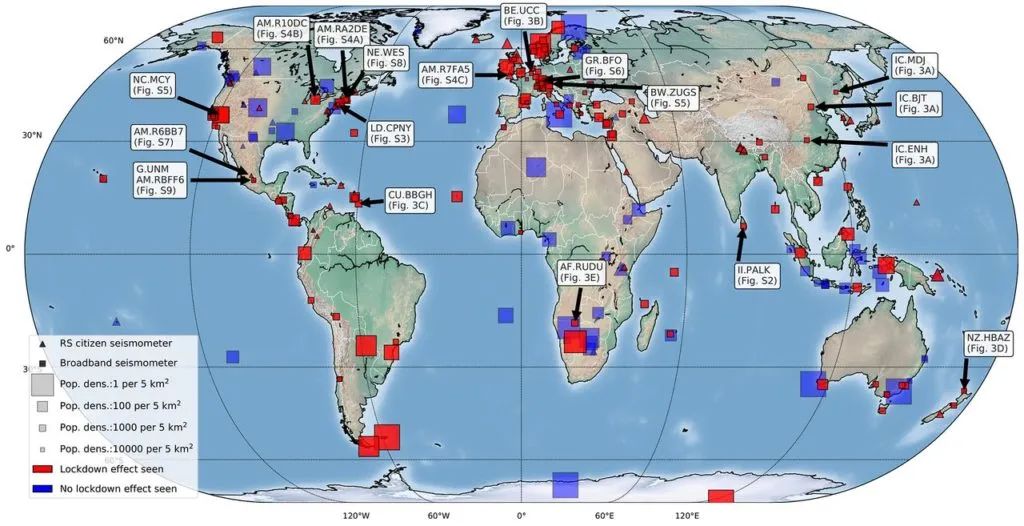
Earthquake sensors pick up the ‘global quiet’ caused by COVID-19
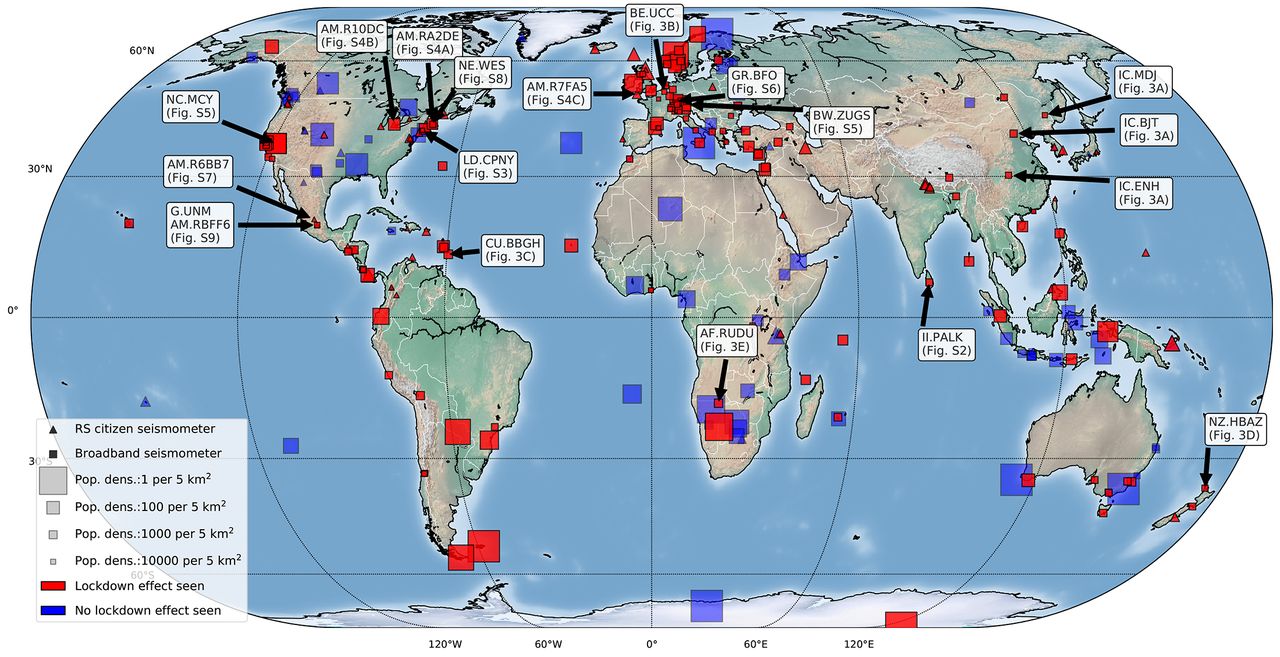
268 seismometers (red) in 117 countries detected a drop on seismic noise
As countries across the world halted economic activity to combat the spread of the novel coronavirus, the relative quietness was noticed by the sensors listening for earthquake signals as well.
Earthquake sensors, seismometers, typically register the high-frequency vibrations caused by several types of human activities, such as road traffic, football games, parades, industrial blasts, et al. Unsurprisingly, this human-generated seismic noise is more prominent in urban environments – the same areas where distinguishing natural hazards from other seismic signals holds incredible importance to ensure the success of early warning systems.
Now, for the first time in recorded history, scientists have been able to study the global scope of human-induced rumblings for months at end. Between March and May 2020, high-frequency seismic noise dropped by as much as 50 percent, giving researchers a unique opportunity to detect subtle signals from subsurface seismic sources that would have been concealed in noisier times.
The research, led by the Royal Observatory of Belgium and five other institutions around the world, saw participation from 76 scientists who combed through data from 268 monitoring stations in 117 countries.
In the below video, you will see the ‘wave’ of noise dampening as the world locks down in the first clip. The second clip shows the UK’s seismic noise reduction after the lockdown was announced:
According to the research’s lead author, Dr Thomas Lecocq, “With increasing urbanization and growing global populations, more people will be living in geologically hazardous areas. It will, therefore, become more important than ever to differentiate between natural and human-caused noise so that we can ‘listen in’ and better monitor the ground movements beneath our feet. This study could help to kick-start this new field of study.”
Co-author Dr Stephen Hicks from Imperial College London adds, “This quiet period is the longest and largest dampening of human-caused seismic noise since we started monitoring the Earth in detail using vast monitoring networks of seismometers. Our study uniquely highlights just how much human activities impact the solid Earth, and could let us see more clearly than ever what differentiates human and natural noise.”
The complete report has been published in Science.
Did you like the article? Read more and subscribe to our monthly newsletter!






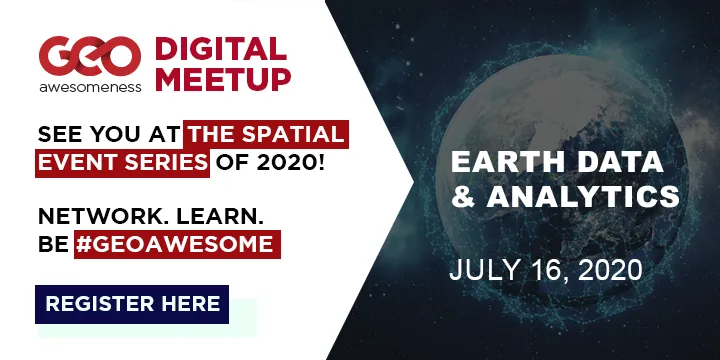
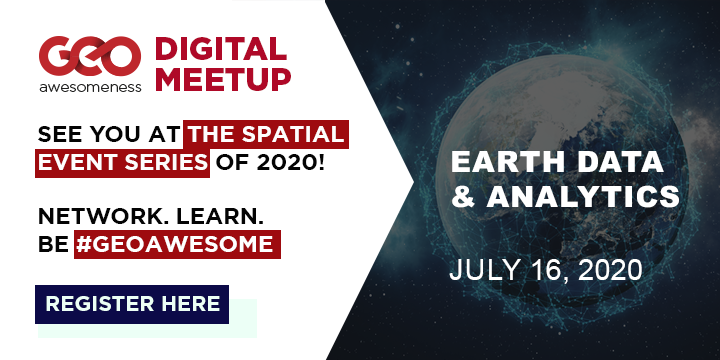


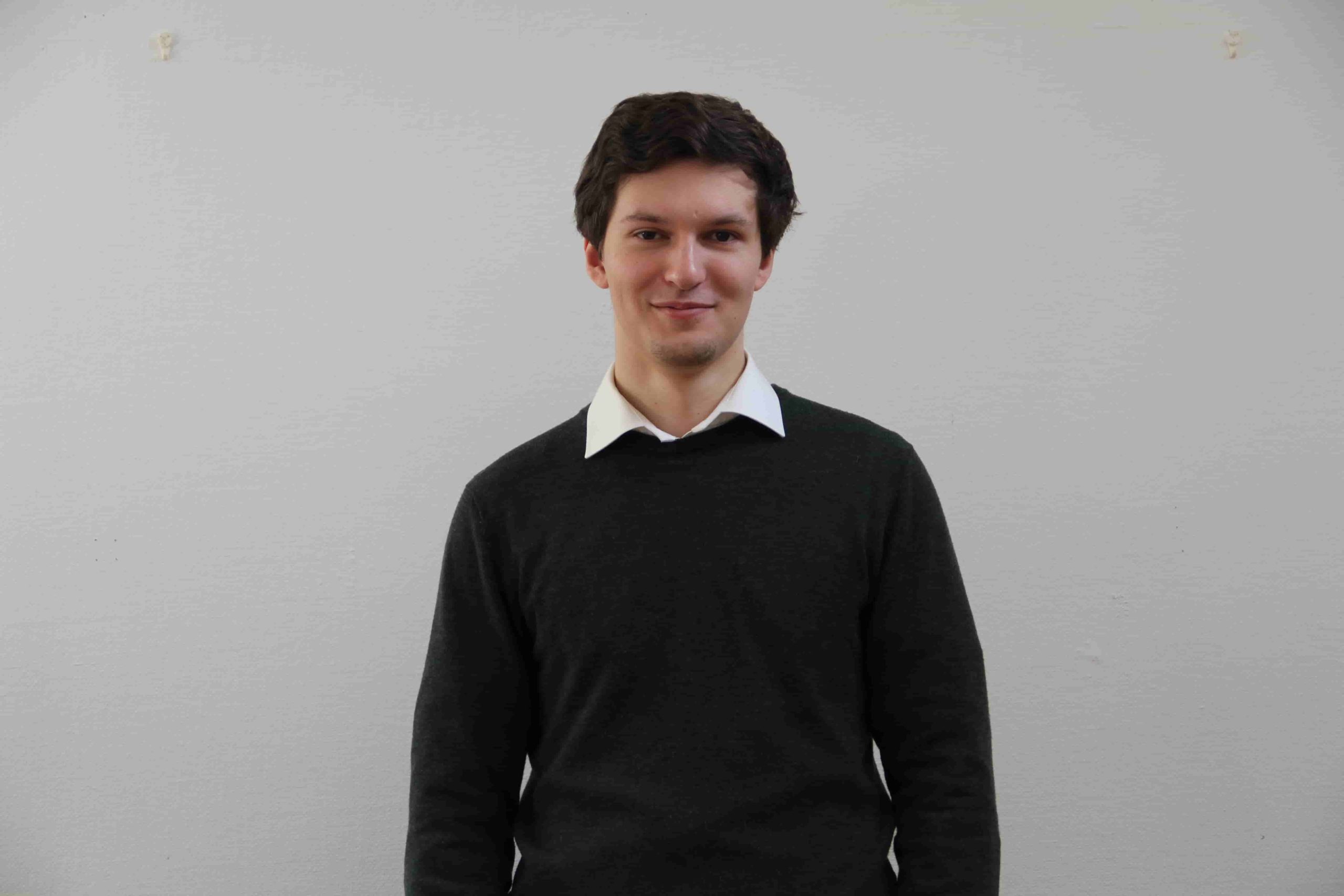
 Advait Kulkarni
Advait Kulkarni